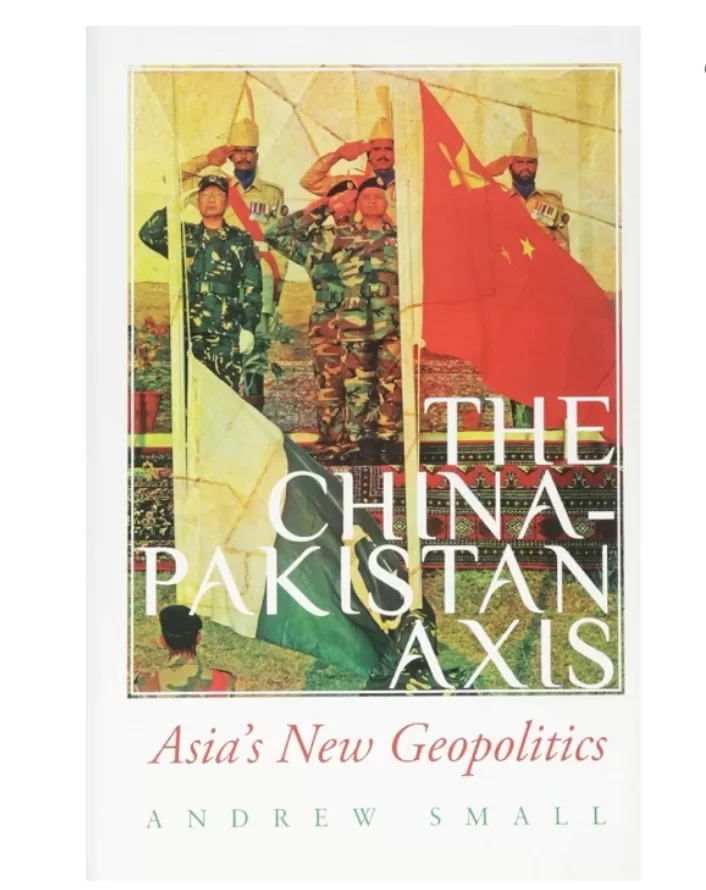In 1965, during the aftermath of a war with India, a Pakistani military delegation sought assistance in replacing lost equipment in Beijing. Premier Zhou Enlai, taken aback by their request for a mere 14 days’ ammunition, posed a thought-provoking question: “How can a war be fought in such a brief period?” He further inquired about Pakistan’s preparations for guerrilla warfare and the establishment of a People’s Militia in every village and town. This early anecdote, as presented in Andrew Small’s remarkable work, “The China-Pakistan Axis: Asia’s New Geopolitics,” highlights the peculiar nature of the relationship between China and Pakistan, devoid of the cultural affinity one might expect, despite General Xiong Guangkai’s comparison of “Pakistan as China’s Israel.”
Over the years, China has occasionally left Pakistan to navigate crises on its own, from the 1965 conflict to more recent challenges. In 1971, during Pakistan’s disintegration, desperate messages promised U.S. and Chinese intervention, but none materialized. Furthermore, economic statistics reveal underwhelming results; Vietnam, with an economy half the size of Pakistan’s, boasts four times the bilateral trade. Although China pledged $66 billion in assistance to Pakistan between 2001 and 2011, a mere 6% materialized.
This incongruity contrasts sharply with the elaborate rhetoric of Pakistani leaders during bilateral visits. Prime Minister Nawaz Sharif once proclaimed, “our friendship is higher than the Himalayas and deeper than the deepest sea in the world and sweeter than honey.” However, as Small elucidates, Pakistan’s genuine value to China lies in the strategic leverage it offers against India, compelling India to remain vigilant regarding its western neighbor.
China significantly contributed to Pakistan’s nuclear weapons program over several decades, beginning with fissile material in the 1980s and progressing to advanced missile technology in the 1990s. China’s commitment to Pakistan in this regard flouted its own non-proliferation commitments. A “coordination bureau” established in 1969 facilitated arming, funding, and training of Indian insurgents, a policy that China has never entirely abandoned. Moreover, China has shielded Pakistani intelligence officers from UN terrorism sanctions.
While this historical context is familiar, Small adds depth by incorporating extensive interviews, providing insight into Chinese foreign policy. One noteworthy theme is the generational shift among China’s South Asia experts. Younger analysts advocate accepting the rivalry with India and nurturing the strategic relationship with Pakistan. This shift has implications for China’s behavior towards India, including recent border tensions coinciding with President Xi Jinping’s visit to Delhi.
China has adeptly managed its relationship with Pakistan, partly due to its flexible stance on international terrorism: “don’t bother us” in relation to Uighurs, and in return, China provides financial incentives and small arms to placate potentially threatening groups. This support extends to the Taliban, with China even hosting them. China has capitalized on Pakistan’s intelligence ties to jihadists, with Pakistani spies facilitating meetings and ensuring adherence to China’s red lines.
However, China’s support is not unconditional. A Chinese expert notes that if India were to launch airstrikes on Pakistan, China would consider a response. Additionally, China is willing to help Pakistan safeguard a Pakistani nuclear arsenal but not an Islamic one.
Chinese concerns have grown due to violence in Xinjiang and threats against over 10,000 Chinese nationals in Pakistan. China remains anxious about the East Turkestan Islamic Movement (ETIM) operating in Pakistan’s tribal areas. Complaints about Pakistan’s handling of intelligence on ETIM locations and extremist sympathies within Pakistan’s Army have further strained the relationship.
Small concludes that Pakistan serves as both a Chinese pawn against India and a platform for power projection. Despite some friction, China is likely to deepen its relationship with its only steadfast ally in the world. The question remains whether this partnership will face more significant challenges in the post-American era.
China is wary of overextending itself, and when the U.S. eliminated Osama bin Laden, China examined a crashed U.S. stealth helicopter but declined Pakistan’s defense agreement offer. China emphasized that it wouldn’t substitute for the Americans, signaling the urgency for Pakistan to mend ties with Washington.
This comprehensive analysis raises intriguing questions about the dynamics of the China-Pakistan relationship, characterized by its complexity and regional implications.







